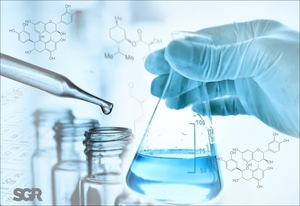Sustainable Pharma Manufacturing: Paving the Way for Greener and Environmentally-Friendly Practices
Body
The pharmaceutical industry plays a vital role in improving global health, but it is also important for the industry to prioritize sustainable practices to minimize its environmental impact. With increasing awareness of climate change and the need for eco-friendly solutions, pharmaceutical manufacturing is undergoing a transformation towards sustainability. In this blog, we will explore how the industry is embracing greener practices and implementing sustainable strategies to reduce its carbon footprint and promote a healthier planet.
Green Chemistry and Clean Manufacturing:
One of the key approaches to sustainable pharmaceutical manufacturing is the adoption of green chemistry principles and clean manufacturing processes. Green chemistry focuses on minimizing or eliminating hazardous substances and reducing waste throughout the manufacturing lifecycle. By using safer and more sustainable chemicals and processes, pharmaceutical companies can significantly reduce their environmental impact. Clean manufacturing practices aim to optimize resource utilization, energy efficiency, and waste management, resulting in a more sustainable and eco-friendly production process.
Renewable Energy Sources:
Pharmaceutical manufacturers are increasingly turning to renewable energy sources to power their operations. Solar power, wind energy, and geothermal energy are becoming popular choices, helping to reduce reliance on fossil fuels and lower greenhouse gas emissions. The installation of solar panels and wind turbines on manufacturing sites allows companies to generate clean energy onsite, reducing their carbon footprint and energy costs. By embracing renewable energy, pharmaceutical manufacturers contribute to the global transition to a low-carbon economy.
Waste Reduction and Recycling:
Efforts to minimize waste and promote recycling are integral to sustainable pharmaceutical manufacturing. Companies are implementing waste management strategies that focus on reducing packaging materials, optimizing inventory management, and recycling or repurposing materials whenever possible. By adopting circular economy principles, pharmaceutical manufacturers aim to minimize waste generation and maximize the utilization of resources. Recycling initiatives not only reduce environmental impact but also contribute to cost savings and operational efficiency.
Water Conservation:
Water is a valuable resource, and sustainable pharmaceutical manufacturing involves conscious efforts to conserve it. Manufacturers are implementing water-saving technologies and practices, such as water recycling, rainwater harvesting, and the use of water-efficient equipment. By optimizing water consumption and reducing wastewater generation, companies can minimize their ecological footprint and contribute to water conservation efforts. Efficient water management not only benefits the environment but also helps ensure the availability of clean water for communities.
Supply Chain Sustainability:
Sustainable pharmaceutical manufacturing extends beyond the factory walls and encompasses the entire supply chain. Companies are collaborating with suppliers to ensure sustainable sourcing of raw materials, including active pharmaceutical ingredients and packaging materials. By engaging suppliers who follow environmentally-friendly practices, pharmaceutical manufacturers can support responsible resource extraction and reduce the overall environmental impact of their products. Supply chain transparency and accountability play a crucial role in promoting sustainability and fostering a greener industry.
Conclusion:
Sustainable pharmaceutical manufacturing is paving the way for greener and environmentally-friendly practices within the industry. By embracing green chemistry, clean manufacturing, renewable energy sources, waste reduction and recycling, water conservation, and supply chain sustainability, pharmaceutical manufacturers are minimizing their environmental impact and contributing to a more sustainable future. As the industry continues to prioritize sustainability, it becomes an important ally in the global effort to combat climate change and create a healthier planet for generations to come.
Looking for reliable API impurities for your pharmaceutical products? Look no further! Hemarsh Technologies offers a wide range of high-quality API impurities manufactured in India.
What is the most common impurity for APIs?










Comments